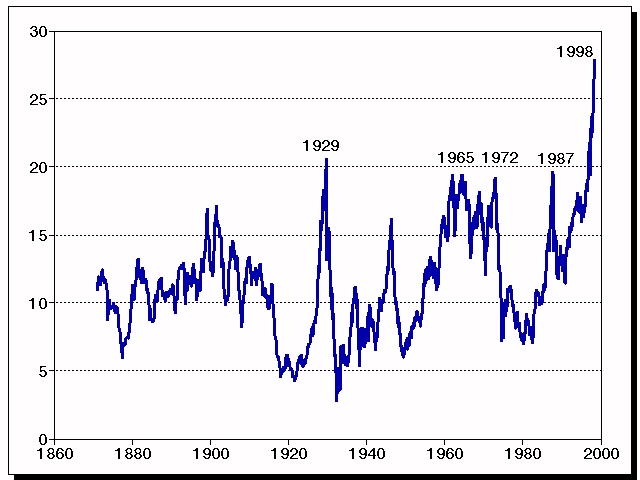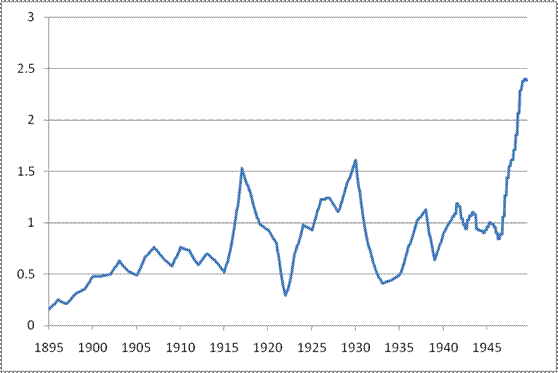You can't deleverage banks
Posted: Wed Dec 17, 2008 11:51 pm
The banking system is an accounting system and little else. The Fed doens't print money, it exchanges notes like any other bank. The banking system ledgers are made up on the debit side of loans and on the credit side of deposits of varying types, long term debt, paid in capital and retained earnings. You could also say that the cash a bank has on hand is also a debit entry, but it might have a corresponding credit entry or more likely it was the result of a credit entry against another asset, most likely a treasury bill or other high quality asset bought by the Fed in return for the cash. The Fed has a corresponding asset for every dime of cash it put out, thus the private sector has to give up its interest bearing assets for non-interest bearing cash. Finally we have parity as the rate on t-bills don't earn enough interest to pay for printing and accounting for them.
When a bank deleverages, it destroys the money supply. I take that back to a point, but in a general sense, this is true. You might read Irving Fishers theory on this linkhttp://londonbanker.blogspot.com/2008/0 ... great.html. It is clear that Bernanke is attempting Fishers solution, but in short, Fisher decides that in deleveraging, the system makes every dollar more dear and the debt more absolute as it is done. The banks net worth today is likely tied up in assets that are of dubious value at best while its liabilities, the deposits are absolute. Thus if all the people that could pay did so, what would be left would either be no money supply or better yet, deposit liabilities supported by bad debts. What the Fed is probably doing with Citi is allowing them to divest themselves of this crappy paper they have in order that they retire their $400 billion in fed funds liabilities. I believe this is the majority of the money that the banking system wouldn't lend to each other, as Citi basically owed the other banks around the world $400 billion it needed to borrow back. The Fed will probably buy this stuff with a 10% haircut and a government guarantee and allow Citi to get out of this liquidty bind they are in.
Here is the paradox. IF the government gives the banks cash for their stuff, what they have is cash to back the deposits they still owe. This does absolutely nothing to the net worth or solvency of a bank and most likely at this time they are going to either wish to hold what the Fed wants to buy or better yet, if they really need to get rid of it, I doubt they are going to get back into the mess they just got out of.
When a bank deleverages, it destroys the money supply. I take that back to a point, but in a general sense, this is true. You might read Irving Fishers theory on this linkhttp://londonbanker.blogspot.com/2008/0 ... great.html. It is clear that Bernanke is attempting Fishers solution, but in short, Fisher decides that in deleveraging, the system makes every dollar more dear and the debt more absolute as it is done. The banks net worth today is likely tied up in assets that are of dubious value at best while its liabilities, the deposits are absolute. Thus if all the people that could pay did so, what would be left would either be no money supply or better yet, deposit liabilities supported by bad debts. What the Fed is probably doing with Citi is allowing them to divest themselves of this crappy paper they have in order that they retire their $400 billion in fed funds liabilities. I believe this is the majority of the money that the banking system wouldn't lend to each other, as Citi basically owed the other banks around the world $400 billion it needed to borrow back. The Fed will probably buy this stuff with a 10% haircut and a government guarantee and allow Citi to get out of this liquidty bind they are in.
Here is the paradox. IF the government gives the banks cash for their stuff, what they have is cash to back the deposits they still owe. This does absolutely nothing to the net worth or solvency of a bank and most likely at this time they are going to either wish to hold what the Fed wants to buy or better yet, if they really need to get rid of it, I doubt they are going to get back into the mess they just got out of.

